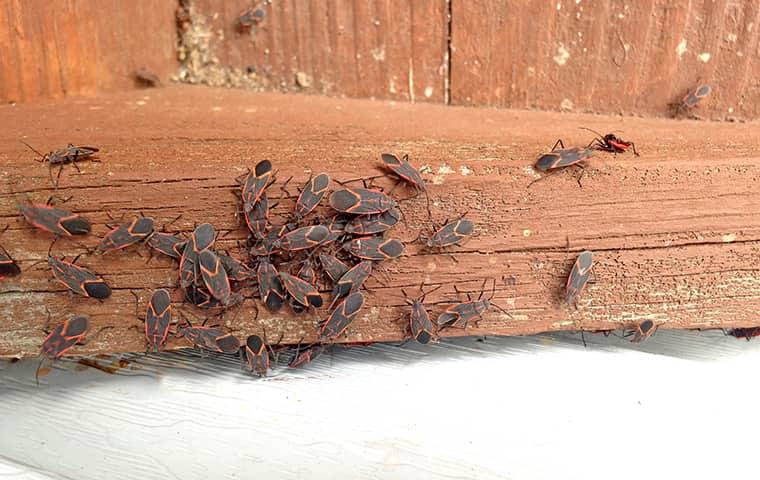Much like we humans, there are a number of pests that cannot survive outside in the winter when the weather gets too cold. In late the fall, in an attempt to seek refuge from the harsh weather, these pests often find their ways into our homes. This group of pests is most commonly referred to as overwintering pests, as they will spend the winter inside of homes and then leave again come springtime. And even though most overwintering pests are only nuisances, that doesn’t mean you want them inside of your St. Charles home. You should know that there are steps that you can take to keep these seasonal pests out of your house all winter long.

Common Overwintering Pests In The Area
While there are many different pests that make their way indoors come wintertime, there are four overwintering pests common to the area that include box elder bugs, stink bugs, Asian beetles, and cluster flies. It's easy to identify them if you know their characteristics:
Box Elder Bugs
These overwintering pests have pill-shaped black bodies, wings outlined in orange or red, six legs, and antennae. As they cannot survive in cold weather, they will frequently invade homes in late fall.
Stink Bugs
They have a “shield-like” shape to them and are mottled grayish-brown in color. They are capable of flying and will release a foul-smelling odor if they feel threatened or are smashed which is from where they get their name.
Asian Beetles
They can be a wide assortment of colors including orange, red, and yellow. They have smooth, oval-shaped bodies that are domed and often covered in a number of dark spots.
Cluster Flies
They are larger in size than common houseflies and, unlike traditional houseflies, they lack a metallic coloring. Instead, cluster flies have long narrow bodies that are gray in color and often invade in very large numbers.
Issues That Arise With Overwintering Pests
For the most part, overwintering pests are considered nuisance pests which means they do not pose any substantial threats to humans. However, some can damage our property and our plants. For instance, in addition to emitting a foul odor, stink bugs have been known to feed on houseplants which can cause extensive damage to the plants if left unchecked. Also, many overwintering pests can stain upholstered furniture, sheets, pillowcases, and curtains. Even if these pests do not pose any threats, that doesn’t mean you want to see them around your house and you need to know the steps you can take to keep them out of your home.
Pest Prevention Techniques
When it comes to preventing overwintering pests from coming into your home, your primary objective should be to eliminate any factors that might attract them inside and seal off any possible entry points.
To prevent overwintering pests from gaining access to your home, you should:
-
Store all food in airtight containers or the fridge.
-
Refrain from leaving food out on the counter for long periods.
-
Take out the trash regularly.
-
Store trash in containers with tight-sealing lids.
-
Fix any leaky pipes or fixtures.
-
Use dehumidifiers to keep moisture levels low.
-
Seal any cracks in the foundation of your home with caulk.
-
Install weather stripping and door sweeps around windows and exterior doors.
-
Install screens in windows and exterior doors.
-
Cap your chimney to prevent pests from entering it.
The Most Effective Protection From Overwintering Pests
The best method for preventing overwintering pests from invading your home this winter is to partner with the pros here at Pest Control Consultants. Our ongoing professional assistance and treatment plans will provide you with the peace of mind that can ensure your home is protected from overwintering pests throughout the winter. Don’t let these seasonal pests make their home inside of yours. Give us a call today at Pest Control Consultants.
 Customer Reviews
Customer Reviews
